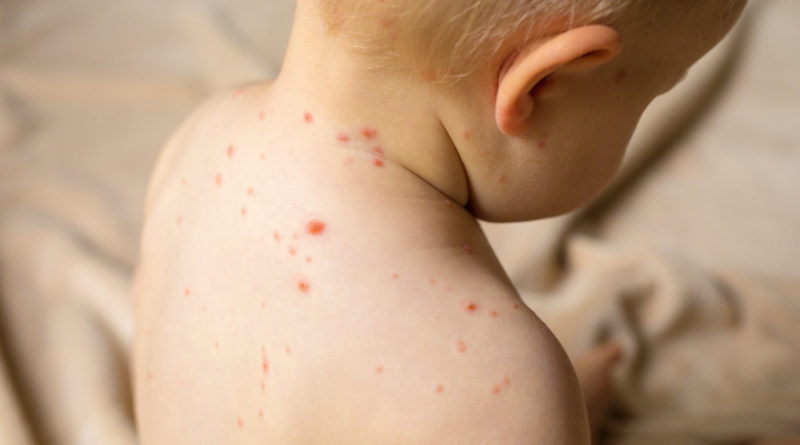Chickenpox Has Resurged In Kentucky
1,207 total views, 1 views today
In 1995, scientists developed a vaccine to prevent chickenpox. It didn’t take long for an overwhelming majority of schoolchildren, who are especially vulnerable to the disease, to receive the vaccination. Chickenpox outbreaks became less frequent, but fear of the disease still lingered.
But now, chickenpox is making headlines again.
In Kentucky, two seemingly-unrelated events have generated headlines about chickenpox. The first story originated on March 19th, when Kentucky governor Matt Bevin said on a radio show that he had once brought his nine children to something known as a “chickenpox party.” Specifically, he brought his children to a party with a child known to be infected with chickenpox, in hopes that his children would contract the dangerous, highly-contagious virus.
And that they did. As Bevin said on the radio show, all his children felt awful for a few days while suffering through chickenpox, but they ultimately survived with no long-term effects. One example of children living through chickenpox does not, according to medical professionals, qualify a chickenpox party as a valid health-related tactic — at least now that we have vaccines.
Chickenpox parties of the sort Bevin attended are not new phenomena. Medical professionals were okay with them before the chickenpox vaccine was invented, because they were the closest thing anyone had to a legitimate method of ensuring long-term chickenpox resistance in children. The now-common vaccine, however, is far more effective in chickenpox prevention. The vaccine, administered when a child is one year old and again after pre-school age, boasts a 90 percent prevention rate.
The other chickenpox-related Kentucky event serves as a reminder that, nevertheless, not all parents opt to vaccinate their children. At Kentucky’s Our Lady of the Assumption Church school, there has been an outbreak of chickenpox. In response, the Kentucky Health Department has banned all unvaccinated students from attending the school until the outbreak passes. One student at the school sued the health department over this ban.
Jerome Kunkel, whose family founded both the church and school, is unvaccinated due to his religious beliefs. Kunkel’s religious beliefs oppose abortion, and an ingredient in the chickenpox vaccine is derived from fetal tissue. However, the anti-abortion National Catholic Bioethics Center approves of the vaccine, because it contains no actual cells from aborted fetuses.
Kunkel’s father agrees with his son. In a statement to local NBC affiliate WLWT, the elder Kunkel claimed that the state’s ban represents an attempt to force secular values onto his family. The mandatory vaccination program does indeed allow for religious exemptions, and the Kunkel family claims it filed the proper paperwork for the exemption. The health department is nevertheless sticking to its guns, insisting that Kunkel is subject to the ban. This ban will remain in place until 21 days after the last rash to appear on any school staff member or student fully disappears.
In response to the Kunkel lawsuit, the Kentucky Health Department’s lawyer said that the state has properly used its authority. The case will be heard in court on April 1st.

